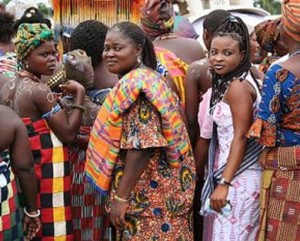Assemblies in Upper East fail to meet women’s quota
 All the Municipal and District Assemblies in the Upper East Region, except one, have failed to appoint the required 30 per cent quota of women to the Assemblies.
All the Municipal and District Assemblies in the Upper East Region, except one, have failed to appoint the required 30 per cent quota of women to the Assemblies.
Out of the 13 assemblies in the Region, only the Bongo District Assembly exceeded the set target of the 30 per cent in the appointment of women.
The Beijing Platform for Action, to which Ghana is committed, sets a target of 30 per cent representation of women in decision-making positions at all levels, yet the assemblies in the region failed to achieve that target.
At a forum organized by the Past and Present Assembly Women’s Association (PPAWA) in Bolgatanga to reflect on the 2015 District Level Election (DLE) and to elect new executives to steer the activities of the Association, the women expressed disappointment in the political heads of the Region for failing to meet the 30 per cent quota of women to the Assemblies.
According to the Association, prior to the District Level Elections, they appealed to the political heads of the region, including all the 13 District Chief Executives (DCEs) at meetings and even issued a communiqué, which pleaded with them to ensure that they met the target and yet they failed to do so.
The group expressed gratitude to the Bongo District Chief Executive, Mr Alexis Ayamdor, for exceeding the set target by ensuring that out of the 16 government appointees to the Assembly eight of them were women, representing 50 per cent.
Giving an overview of statistics of elected and appointed Assembly women in the various Districts in the Region, Mr Daud James Abang-Gos, the Upper East Regional Chairman of the Regional Inter-Sectoral Gender Network (RISEGNET), mentioned that in the Pusiga District where no woman was elected, only two women were appointed whilst the Bawku Municipal and Bawku West Districts which also had no elected women to the Assemblies, appointed three and four women respectively.
The rest are Nabdam District which had no elected woman but one appointed; Binduri District with one elected woman and one appointed; Garu District with one elected and four appointed, and Talensi which had one elected and two appointed women.
Bolgatanga Municipal Assembly had one elected and five appointed women; Kassena-Nankana West District had three elected and two appointed; Kassena-Nankana Municipal registered one elected and three appointed women, while Builsa South had one elected and one appointed and Builsa North had one appointed and none elected.
Mr Abang-Gos who blamed the situation on the political leadership of the Region,
said the number of Assembly women had dropped from 66 to 50 after the District Level Election, and entreated those who won the election to work hard to justify the confidence reposed in them.
Mrs Agnes Atayila, the immediate past President of the Association commended IBIS-Ghana, Action-Aid Ghana, the Community Development and Advocacy Centre (CODAC) and RISEGNET for their support to women, and advised women not to compete with each other for the same positions.
Instead, she said they should resort to negotiations in any political sphere and support one woman to contest to make it easier for the candidates to win.
Mrs Cynthia Bawa, the Programme Facilitator of IBIS-Ghana, congratulated all the assembly women and stressed that the only tool that could give room for more women to be given the opportunity to participate in decision-making in the country was the passage of the Affirmative Action Bill.
She impressed upon the group to join the crusade in advocating for the passage of the Bill.
Sharing their experiences about the District Level Election, most of the Assembly women mentioned socio-cultural and financial barriers as some of the main challenges that they encountered during their campaigns.
Source: GNA
